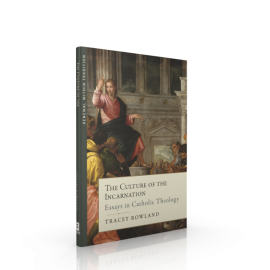By Tracey Rowland
Dr. Tracey Rowland currently holds the St. John Paul II Chair of Theology at the University of Notre Dame (Australia). She is the author of The Culture of the Incarnation: Essays in Catholic Theology.

Most pop-culture celebrities are not only post-Christian but their lives are often what philosophers call “narrative wrecks.” The narrative or story of their life contains so many twists and contradictions that their personal integrity has been shattered. They often employ an entourage of “minders,” including life coaches, to advise them on how to conduct their professional and private affairs. Whereas the life of an ordinary Christian is described in the sociology journals as a life “celebrated recurrence” in which certain feast days and liturgies are celebrated the same way year after year and in which there is only one model of a perfected humanity, that of Jesus Christ, the lifestyle that was celebrated by the elite of the generation of ’68 was one that gave priority to originality and difference. The more original the lifestyle, the greater its difference from that of an ordinary person, the more likely a person was to qualify for celebrity status. Lifestyles became works of art. Although they were supposed to be self-constructed without reference to any external standard, often the individuals who qualified for celebrity status became products. Far from controlling their own lifestyle choices, they were packaged and marketed by their managers.
For Joseph Ratzinger, later Pope Benedict, the pop culture industry is an important component of John Paul II’s culture of death because it retards the spiritual development of youth. He is therefore critical of those pastoral strategies, often found in secondary schools and youth ministries, of making the faith fashionable by correlating or tying it to the pop-culture industry.
Yves de Maeseneer has written a fascinating essay comparing the reception of the stigmata by St. Francis of Assisi with the mechanisms by which brand logos are engraved on the human memory and form an element of contemporary youth culture. He develops the thesis that brand-name multinational corporations have their own theo-aesthetic program. According to Naomi Klein, author of the best-selling book No Logo, the brand-name multinational corporations sell images and lifestyles rather than simple commodities: “Branding is about ideas, attitudes, lifestyle and values all embodied in the logo.” The market power of brands and logos associated with international celebrity figures attests to a sublimated need in secular culture for the sacramental, that is, for signs, symbols, and even grace that help to define the self. The contemporary popularity of “body art” tattoos may well be attesting to the same need to fill the “hole,” so to speak, left by the erosion of a sacramental cosmos and especially the failure of post-Christian parents to have their children baptized.
Pope Benedict not only implores Christians not to buy into the culture of a secularist substitute for sacramentality but also positively tries to defend and promote the Christian belief in the true, the beautiful, and the good as transcendental properties of being and belief in the theological virtues of faith, hope, and love as an alternative theoretical foundation for self-development. The transcendental properties of truth, beauty, and goodness are linked to the theological virtues of faith, hope, and charity and to the faculties of the human soul—the intellect, the memory, and the will—in such a way that the theological virtue of faith works on the intellect to lead it to truth, the theological virtue of love works on the will to lead it to goodness, and the theological virtue of hope works on the memory and fosters its thirst for beauty. While aspects of contemporary mass culture are hostile to truth, beauty, and goodness, it is mass culture’s attack on beauty that was so central in the prepapal writings of Ratzinger.
You Might Also Like

In The Culture of the Incarnation, distinguished theologian Tracey Rowland takes up the relationship of Christ and culture, broadly understood. She contrasts the principles undergirding what St. John Paul II called a “culture of death” with those required for the flourishing of a humanism that flows from the grace of the Incarnation.

